#World war z classes
Explore tagged Tumblr posts
Note
Generational cohort discourse has rotted your brains to the point that you'll blow past every systemic indicator (unfamiliarity with internet, reluctance to risk breaking anything -> socioeconomic/ geopolitical; can't find and follow instructions -> lack of language fluency/ disability) to monolithize an entire population segment of the global based on what year they were born.
Also, more people are now on the internet than at any other time in history. Most social media visibility is centered around young people. Which means a greater cross-section of young adults are visible to you. People who were bad at tech when we were kids just gave up on computers because we could live without them those days, but those same kind of people are on social media now. Your confirmation bias is doing the rest.
Begging you on my hands and knees to understand that generational cohorts are a market segmentation strategy based solely on the USAmerican urban middle-class, that was later appropriated by the right-wing media to create culture wars. Using it as the primary perspective with which to view society is ego-centric and imperialist, and makes structural inequality invisible which is the whole point.
It's a little depressing seeing Gen Z kids in my fandom who got onboard via a recent release going, "I wish I knew how to use tumblr to post fic! I wish I knew how to get an invite to AO3 to post fic there!" because... you can just. do those things. Hit the 'get invite' button. Write, copy and paste into the tumblr post box, add some tags, done. "If anyone can teach me how to use it/how to get an invite I'd really appreciate it!" my [redacted] in Christ you can just fiddle around with AO3 to figure it out and visibly see how posting fic on tumblr works.
There's a death here of willingness to try to figure something out on their own that I find really sad. You're 15, that is old enough to try and poke the get invite button before asking how to get an invite. You can do this. I believe in you, I know you can do it. Just try.
--
#Gen Z– whose Gen Z?? who the fuck country's Gen Z are you talking about?#middle class white kids in urban USA??#you know there are like DOZENS of kids born between 1997–2008 in other parts of the world right??#some of them not even in the West omg!#not like literally half the world is fluent in English because y'all colonized the shit out of it??#I hate Anglo Westerners so much#social justice#ageism#usamerican imperialism#capitalism#culture wars#propaganda#systemic failure#knee of huss
459 notes
·
View notes
Text
I don't think goyim properly understand the fear and change that the wave of antisemitism currently taking place in the wake of the October 7th massacre has induced in the Jewish community.
In a wide-lens view, Jews have become a 1000% more wary and introspective. This isn't limited to diaspora Jews--the headlines pouring out of Israel until October 7th have been of division, polarization, and conflict. Conflict over the 2018 Nation-State Law. Over Bibi's premiership. Over the judicial reform laws. Over the Orthodox Rabbinate. Over this. Over that.
But Israeli society is more unified than ever right now. The judicial reform laws were shelved shortly after the war began and the protests ended on October 8th. Some of it is the rally around the flag effect, yes, and will probably fade as time passes--politics never stops--but the era of Israelis being at one another's throats? Of forgetting that we are all one people and we are all under attack? Gone. It died on October 7th.
In the Diaspora, Jews are once again asking themselves the question--will I need to flee? Guys, a fifth of Gen Z--my generation, that I attend university with--believes the Holocaust was a myth. Two thirds of them think Jews are oppressors. That's terrifying. And the reason we don't take comfort in people saying, 'They're kids with no political power.' is that that won't be true forever. Today's slacktivists who casually say that Israel has no right to exist are tomorrows lawmakers. They will grow up and set policy.
We don't know if they'll grow out of it. I pray to HaShem that they will, but how do I know if they will?
And that's tomorrow's world. Today's world is already bad enough. I don't wear my Star of David necklace to the self-defense classes I've started taking because being surrounded by burly dudes learning how to fight people better isn't a great place to potentially learn that I'm surrounded by antisemites.
Jews--in the year 2024--are being doxxed, seen their homes and synagogues vandalized and threatened, walk past Palestine protests screaming for the death of Zionists, and antisemitism has increased in the United States alone by more than 400%. It's worse elsewhere--Turkish shop owners have been barring Jews from their stores and France has seen antisemitic incidents increase by 1000%. Jews have been leaving social media sites like Tumblr, Reddit, Tik Tok, and Twitter in droves, chased away by the constant, unceasing stream of anti-Jewish hate.
Gentiles need to understand that their words and actions have very real consequences. Jews are not dumb. We're not imagining things. We aren't 'getting our just desserts'. Our fears are grounded not only by historical context but by our current, everyday, lived realities. To gentiles, reading 'antisemitism has gone up by x percent' is a factoid. To us, it is a serious threat and a deep concern.
EDIT: I'm tired of pro-Palestine people sharing this post and using it to back their agenda. You are not welcome to use my experiences to suit your agenda. I am a Zionist! This post is Zionist! Stop taking my words from me and using it against my people.
#jewish#judaism#jumblr#antisemitism#anti zionisim#Jews already know this of course#but I wanted to post it for any gentiles who see it#stop jewish hate
1K notes
·
View notes
Text
I just want to understand how westerners who never experienced war, who don't have anyone they know affected by war, have the audacity to sit in their ivory towers and pontificate about war. It's truly mind boggling. These pampered, privileged, spoiled little kids sitting on social media, treating wars in which real people are dying like they're a particularly interesting Netflix show, drawing anime characters with the colors of terrorist regimes.
I have family in Odesa. Practically every summer of my childhood I spent in Odesa. I went to the beaches. I stayed at my aunt's apartment. Walked around the city with my cousin. Odesa is beautiful. And I watched it be bombed by Russians with no ability to stop my terrorist government from doing so. I received text messages from my cousin, saying, "we have fireworks tonight" and nearly lost my mind every time I heard of new bombing. I didn't know if the next day I would be hearing of my relatives being trapped under rubble. I had nightmares over what the Russians did and are doing in Ukraine. Bucha still haunts my thoughts. All of this slaughter is being done by my government and I have no ability to stop it. And Russian society supports it. You know, those screaming about innocent civilians show only one thing - they don't understand the first thing about fascist societies. The innocent civilians of Russia celebrated the annexation of Crimea. They stuck Z symbols to their cars and hung st George ribbons on their clothes to support the invasion. They got their kids to record their anti war teachers to get them fired or even imprisoned. They dress up their kids in military style clothes and they invite terrorists to speak in front of class about 'patriotism'. An innocent civilian art class teacher reported a girl who drew an anti war picture in class to the innocent civilian school principal. The principal called the police. The girl was put into solitary confinement until her mother agreed to take her. Her father was kidnapped and secretly put in prison.
Some other absolutely ignorant claims I've heard are ones about "collective punishment" and "illegal blockades". Funny. I live under collective punishment - sanctions, and countries bordering Russia are closing entry to Russians, slowly forming a blockade. And you know what? Russia deserves it. Russia deserves to learn the hard way that this is what you get for being an imperialist aggressor. I don't blame the Baltics, or Finland for closing their borders with Russia. I blame Russia for being such a shitty neighbor that such measures were needed in the first place.
And for those who will say, oh but how does this relate to the Middle East. Well, first of all, I'm a jew. I care when the biggest attack on jews since the Holocaust happens and the world spends 12 months celebrating it and bemoaning that only 1200 were murdered and not 7 million. I also care because, unlike you, I know Putin's allies, I know who helps bomb my family in Ukraine. I know that Hamas and Hezbollah and numerous other terrorist organizations terrorizing Israel are Iranian proxies. And I know Iran and Russia are buddies and Iran sells weapons to Russia. I was here, in Moscow, when the PA and Hamas were here for a visit. I was in the same city as those bloodthirsty murderers who want all jews dead. And yet people will still have the audacity to tell me that I'm the one who's in the wrong. It's me who doesn't understand anything about geopolitics, you see. I'm the one who can't tell the difference between a war and genocide even though I had entire branches of my family erased by the Holocaust, have parents and grandparents who lived in the Soviet Union and watched my own government attempt a genocide in Ukraine. I'm the one who doesn't understand imperialism even though Russia is an empire. Russians believe that all post Soviet states should still belong to them and make no mistake once they have them they'll go on to grab some more. I'm the one who doesn't understand how dictatorships operate such as using outside conflicts to distract the population from internal problems and hold on to power. I'm the one who doesn't understand anything.
I don't care if anything of what I say isn't politically correct. I don't care if just being honest about reality and refusing to coddle westerners with lies loses me followers. I'm not going to lie about my life just to be accepted on social media. I don't care. I don't care what the UN says, they've shown me their alliance way back when they didn't do shit for Ukraine. They let Russia veto whatever it didn't like. Putin wasn't arrested when he visited Mongolia. What did the UN do, really? Except waste their time with Israel? I'm not surprised to learn of the complicity of UNWRA. I'm not surprised to see videos of Hezbollah tunnels mere meters away from UN outposts. The majority of countries in the UN are undemocratic and interested in pushing their own agendas. The UN has lost its purpose. I don't care about the Red Cross, who told hostage families concerned about their family members being held by a brutal terrorist organization that "they should think about the palestinians". The red cross claimed there were no installations for the extermination of jews at Auschwitz too. I don't care about Greta Thunberg who now claims that Israel is causing damage to the environment and has forgotten all about Russia that continues to bomb Ukraine. Russia blew up a fucking dam, but everyone has already forgotten all about that. It wasn't the jews who brought down the Kakhovka dam, so who cares, right? No jews, no news. I don't care about student activists demanding they be brought humanitarian aid on the steps of elite US universities. I don't care about Biden who spent more time holding Israel back, than actually rescuing his own citizens from Hamas. I don't care about the Spanish with their history of antisemitism (the Inquisition), and colonialism (that they're now trying to blame on us by saying Columbus was a jew when he was not). I don't care about the British who also have their own history of colonialism and tried to stop jews who were fleeing the Holocaust from migrating to the then British Mandate. I don't care about South Africa, who would rather distract their own people with Israel rather than sort out their internal problems. I don't care about the BBC, Reuters, CNN, NYT nazi rags that give awards to terrorists taking pictures of the bodies of dead jewish women and cry bitter tears over a murderous monster like Nasrallah. I'm past the point of caring what any of these people say. I see who they are. I see their hypocrisy. I see their blatant bias and hatred. I see all of it. I'm tired of it.
And I'm tired of being lectured by westerners who don't live in reality. Who are so morally confused and who live with such a simplified worldview that they've started supporting terrorism. I actually live these conflicts. Who the fuck are you to lecture me? Who the fuck are you to "educate" me on anything?
#vent post#antisemitism#fuck hamas#fuck russia#stop lecturing people on their own reality and lived experiences#leftist antisemitism#russia is a terrorist state
395 notes
·
View notes
Text
You're not as informed as you think, and age does play a factor.
This is going to ruffle some feathers, but it needs to be said. You're not as informed on the I/P Conflict and the history of the region as you think, and age plays a major factor. Hell, you're not as informed on a lot of topics as you think. I want you to think about what you were doing 5 years ago. Were you still running around on the playground? Were you making dioramas for a science class? Were you in high school worried about being a first year? Were you just starting to pick out colleges or deciding to even go? Did you ever call a teacher by their first name? Now, there is a line that we hear thrown about that people don't fully mature till they're 25. While this is bupkis and misrepresents the research, it is true that the brain does not stop developing till sometime in the mid to late 20s. In fact, the brains of undergraduates age 18-22 and their respective thought patterns more closely resemble high schoolers than they do mid 20s and above. So what does this mean in the course of the I/P conflict? For one thing, this is your first incident. Your first I/P war. Those of us in our 30s and above have seen a good number of them at this point. I even remember when the use of child suicide bombers became a standard method for Hamas and other terrorist groups during the Second Intifada. As such, many of us are used to the manipulation that we see in this particular region. We're used to seeing antisemitism be dismissed and well intentioned people be manipulated. Many of us are just tired because you're going through the same shit we did at your age and we look back and go "oh, we were severely misinformed". Because this is your first, you're super passionate about it, but that passion can be manipulated. Second, you're not as smart or well informed as you think you are. This has to do with the age and maturation thing mentioned above. While 25 is an arbitrary number, there are some milestones that happen by then. By 25 you have had enough life experience to really start piecing together your education, your life experiences, your world experiences, and your respective beliefs into a coherent way of approaching topics. Hopefully by that age you're less likely to have the emotional outburst in response to a subject (think about the stereotypical slamming the door teenager behavior, many of us did that and we cringe thinking about it) and more likely to approach something in a levelheaded and informed manner. Unfortunately there is some research that shows evidence that Gen Z and Millenials are susceptible to propaganda and misinformation, with the former exhibiting behavior akin to Boomers. So keep that in mind that none of us are safe for misinformation, but some generations are worse than others. Now, who am I to say this to you? Some of you are quite mad right at the moment. Some of you have strived to be seen as well informed young adults or to be taken seriously, and in some cases you are. However...
I'm in my 30s and I have been teaching at the college level for a decade and some change now. By no means am I an expert, but I have enough experience to say something. The ages I teach are 18+, meaning I've had students that are typical fresh high school grads and students that are in their 50s. Myself and my colleagues have heard repeatedly from students the "I'm an adult, I know what I'm doing" line to only watch that 18-22 y.o. student fail miserably or come crying to us later. I have personally watched students go through the stages of grief as they realized in my classes that their pet science activism is not what they thought, but they've wrapped so much of their identity around it. You're still learning, and thinking you know more just because you read something online is an issue. You're also still growing and developing as a person. Recognize that you can be manipulated. Recognize that you can be wrong. Recognize your own inherent biases. Then do better.
579 notes
·
View notes
Text
"...we know the government doesn't give a fuck about us. We know the government doesn't give a flying fuck about the future of this country. I don't give a fuck about Biden's campaign! Nor do I give a fuck about Trump's campaign. Because they don't care about me! They don't care about babies. They don't care about women. They don't care about Black people or Native Americans. They don't give a fuck about Palestinian children. I do! I give a fuck about this country! I was born on this soil. I love this place. Because I love my friends, and I love the earth, and I want to protect it, and they don't. Because they want pocket change."
source
FULL TRANSCRIPT:
"
You have to forgive me, cause I'm getting a little angry, but I've seen a lot of rhetoric on this app, and on other social media, and on the news, that our generation is soft. That Gen X- Gen X, Boomers, and Silent Generation believe that Gen Z and millenials and this Gen Alpha are soft. And I will tell you what, I think that is the worst thing to assume.
I have witnessed hundreds of my peers' lives be stripped away from them; their futures, their hopes, their dreams, their prom nights, because of our government's inaction with gun control. I have witnessed millions of lives taken away and altered and changed and ruined because of our government's inaction with Covid.
You guys made us tough. We're tough. We're tougher than you think, and we're tougher than you like to admit. Because we know the government doesn't give a fuck about us. We know the government doesn't give a flying fuck about the future of this country.
I don't give a fuck about Biden's campaign! Nor do I give a fuck about Trump's campaign. Because they don't care about me! They don't care about babies. They don't care about women. They don't care about Black people or Native Americans. They don't give a fuck about Palestinian children. I do! I give a fuck about this country!
I was born on this soil. I love this place. Because I love my friends, and I love the earth, and I want to protect it, and they don't. Because they want pocket change.
Tough. You think you're tough? You're bootlickers! Subservient to the idea of "growth." As if we can grow anymore! Our planet is dying! Because you don't give a fuck. Because you're soft. And saving the planet might be a little tougher than you thought.
I'm ready for that work. You know what I'm not ready for? Another world war. Just because I'm not gonna go over and shoot another working class person that I probably have more in common with, than an owning class piece of shit like Elon Musk, I'm soft? Because I care enough to accomodate my differently-abled peers, I'm soft? Because I don't wanna joke about women getting abused, I'm soft? If I'm alone in a room with Jeff Jackson, I'm leaving with his teeth in a jar. I'll show you how soft I am.
And you wanna ban the only place that we found community? Yeah, nonono. This election year is crazy. Because at this point, like, I think the entire generation, my generation, knows that you guys are geriatric, and knows that the Constitution is as well. It's too old. We are one of the youngest countries and we have the oldest Constitution? Make that make sense to me.
It's time for change. It's time for a new way of life. And these rich, stupid fucks don't deserve to be in charge of it. That's it, I'm sorry, that's it. That's it, I'm done."
#united states#us politics#palestine#free palestine#gun control#joe biden#donald trump#us elections#2024 elections#elon musk#gen z#millenials#gen alpha#video#sorry im bad at tagging stuff like this. lmk if there's other tags i should use im just kind of going off the top of my head
461 notes
·
View notes
Text
If you’re baffled by Skibidi Toilet, you’re not alone.
The bizarre animated YouTube series centers on an alien invasion: a swarm of singing heads, all popping out of toilets, has descended on a Los Angeles–like metropolis and triggered a surreal, cartoonish, apocalyptic war. That’s a more direct and clear explanation than you’ll find in the actual videos, since they’re all almost completely wordless. There’s no language barrier, which is a major reason why the videos have been viewed hundreds of millions of times, becoming a global cultural phenomenon among Gen Z and Gen Alpha.
Surprisingly for something so popular, Skibidi Toilet has garnered a reputation for being incomprehensible to anyone who isn’t a fan. Its impenetrable nature has raised serious concerns around the world. Some call it a moral outrage, foreign propaganda meant to prey on vulnerable young minds, or even a disease. In a cultural climate where it’s harder and harder to understand trends and popularity, people are searching for an explanation for how singing toilets conquered the world. On the May 22 episode of The Late Show, Stephen Colbert punched up a joke about the Biden campaign using Skibidi Toilet to attract the youth vote, saying that if anyone didn’t get the gag, their grandchildren could explain it “and you still won’t understand.”
As random as the videos can seem, their success isn’t. Skibidi Toilet deftly combines modern storytelling trends with nostalgic internet humor in a way that magnifies the outwardly confusing qualities of both. “It was initially appealing to young people for its utter weirdness,” says danah boyd, a partner researcher at Microsoft Research. “Parents (and many other adults) probably reacted with revulsion, as they’ve done many other times. That revulsion from adults makes it even more appealing to young people.”
That’s why the word “skibidi” has become a more general shibboleth for Gen Z and younger, in the same class as “rizz”, “gyat,” and “sigma.” Adults being shocked and confounded at kids having fun creates a feedback loop where kids want to make it even more distressing. The videos certainly have a lot of shock value, featuring surreal, disturbing, and violent imagery. In an interview with Forbes in February, Alexey Gerasimov, who creates the videos and uploads them under the name “DaFuq!?Boom!,” described the videos as being inspired by his own recurring nightmares.
In that light, it can be easy to see why the global success has been met with an equally global panic. Last August, several writers and journalists in Malaysia and Indonesia warned parents about the dangers of a “Skibidi toilet syndrome” that would cause children to refuse to stop imitating the toilet’s songs and dances. Earlier this year, Robbie Collin wrote in the Telegraph that the videos were a sign YouTube needed more strictly enforced age limits.
Other sources are going even farther, calling the surreal meme videos a threat to national security. In February, reporter Olga Sosnina claimed in a Swedish news outlet that Skibidi Toilet was Russian propaganda aimed at indoctrinating children. Russia was just as worried: In January, Moscow officials were called to investigate the videos. In April, Anna Mityanina, St. Petersburg’s Commissioner for Children’s Rights, played the videos to the city’s legislative assembly as part of an annual report on risks to children. “There is no need to pretend that there are no standards of decency,” Mityanina said. “A character in the form of a toilet, to put it mildly, is not cultured enough.”
For all of the worry, there isn’t much to be concerned about within the Skibidi Toilet videos themselves. “I see these media as reflective of our societal obsessions,” says boyd. “As always, young people twist it slightly in a way that makes adults uncomfortable because they don’t want to reckon with their own passions.”
The videos, as uncanny as they can get, don’t contain anything particularly unsuitable for children. The violence is unrelenting and large in scope, but never goes beyond cartoonish explosions and punches. Characters who appear to be killed or turned to the villain’s side regularly return to fight alongside the heroes. The largely wordless storytelling, of course, puts a limit on mature themes. Ultimately, the most “indecent” element of the videos is the toilets themselves, which will always be a hit with the younger generation.
That’s not the only area where Skibidi Toilet follows a long tradition. Gerasimov (who didn’t respond to multiple requests for comment) animates the videos using the Source Filmmaker program, but he’s modified the animation interface to emulate the 2006 game Garry’s Mod. Garry’s Mod, true to its name, was initially a fanmade modification of the game Half-Life 2 that removed any structure or objective, leading to a purely creative sandbox years before Minecraft’s Creative Mode. The game was used to create thousands of machinima videos throughout the late 2000s, and Gerasimov calls these videos a primary inspiration for Skibidi Toilet.
Maddy Buxton, the head of YouTube’s culture and trends team, says this is a major factor in the videos’ success. “One thing we know about Gen Z viewers and creators is they’re interested in nostalgia. It’s hearkening back to this earlier time, even if they didn’t grow up in it themselves,” Buxton says. Skibidi Toilet was one of the top trending topics last year on YouTube, where at one point it garnered 2.8 billion views in 28 days.
Nostalgia and scatological humor can be eye-catching, but to build up the kind of sustained interest and devotion Gerasimov has, there needs to be a story in its own right. The narrative of Skibidi Toilet isn’t communicated directly, but that only adds to its intrigue for many viewers, especially younger ones who are used to having to put in extra work to get the full picture. “We’ve been looking into the role of lore in building these big fan communities,” says Buxton. “The ones that aren’t just passively watching, but digging into the backstory.”
That digging is so popular that it’s transcending traditional structures of fandom. There’s no shortage of ways to be a fan of something online, but Skibidi Toilet’s audience has spent most, if not all, of their lives on the internet, and their work comes out in extremely online forms. Acolytes flood YouTube with breakdown videos and expand on the worldbuilding with Roblox games. Then there’s the comment-section fiction: Wherever the videos are posted, the comments are filled with dozens or hundreds of people providing their own written narratives retelling the events of the video, filling the gap left by the storytelling with their own words. It’s a cross between a liveblogged reaction and fan fiction, creating lore where none existed.
The idea of lore is now fundamental to the way many people consume any fiction, but it started in the world of video games, especially games like Dark Souls that have virtually no direct storytelling. There are hundreds of unofficial Skibidi Toilet games that let players take part in the battles, but the videos themselves invite a similar degree of participation.
“People are coming at it from different entry points,” says Buxton. “Some people are coming in from the gaming world, some are coming just for the action storytelling, some like to unpack lore.” She describes these unusual fan works as “casual creation,” saying that “this idea of being a daily creator makes it much easier to be an active fan than it was five, 10, 15 years ago. Now you can engage in the subject of your fandom by creating it online.”
Of course, Skibidi Toilet itself could be categorized as a fan creation, containing numerous echoes of Garry’s Mod and the Half-Life games. Like many recent works that emerge online, from streetwear trends to unauthorized TikTok musicals, Skibidi Toilet blurs the line between fan work and original work. “Lots of the kids who got into Skibidi Toilet don’t know anything about where these characters and assets are sourced from,” says Phillip Hamilton, an associate editor at Know Your Meme.
Beyond the actual content of the videos, their release schedule is also a factor. “Skibidi Toilet is huge with people (namely kids) who always want more,” says Hamilton. “Each episode is about a minute long and they blast by so fast, with episodes coming out super frequently.”
During the first wave of the videos’ popularity in mid-2023, Gerasimov was uploading at least two videos each week for months, sometimes uploading a video every single day. Social media algorithms have prioritized more frequent uploaders for years, and Gerasimov had been animating in Source Filmmaker for more than a decade, giving him enough experience to crank out the videos fast enough to satisfy YouTube’s algorithm.
This isn’t the first time the algorithm has popularized content that adults find inappropriate for children. In 2017, YouTube faced a public outcry when it was found that the platform was promoting hundreds of disturbing videos, and allowing them to be viewed on its family-friendly YouTube Kids app. The controversy would be known as “Elsagate,” since the offending videos featured popular children’s characters like Elsa, Spider-Man, and Peppa Pig undergoing gory medical procedures, getting kidnapped, and more.
These videos were transparent attempts to game YouTube’s recommendation system for ad revenue. Many of them had hundreds of seemingly inauthentic comments to boost engagement metrics, and a report by the New York Times found one prominent channel was creating videos with a team of roughly 100 people.
YouTube made changes to its algorithm to disincentivize scammers from making these videos. They can’t do the same to flush away Skibidi Toilet, because it wasn’t made to satisfy the algorithm in the same way. It’s a much smaller operation, made with genuine craft and artistic intention. Gerasimov made the videos longer and more ambitious as the series grew in popularity, but that growth happened thanks to people actually enjoying the series, not for associations with popular characters.
Nonetheless, they’ve become even more of a hit among the younger generation, and for parents, this seems to be the real underlying fear. “I think Skibidi Toilet’s ‘negative effects’ on kids are mostly just the obsessive, seemingly addictive aspect,” says Hamilton. “It’s the same reason parents worry about short-form video platforms like TikTok.” The videos took off at the perfect time—after the Covid-19 pandemic accelerated a general shift away from in-person social interaction—for their weirdness to feed into paranoia about what a screen-mediated life might be doing to impressionable young minds.
When it comes to children’s browsing habits, there are many scarier things they might find online than Skibidi Toilet. As strange as the videos are, they wouldn’t do very well as propaganda or even advertising. There’s no agenda, for good or ill, besides the entertainment value. In the Washington Post, Taylor Lorenz compared Skibidi Toilet to “harmless entertainment” like Cocomelon and other children’s videos. Not everyone is happy about the popularity of Cocomelon, but that popularity hasn’t caused the same kind of panic.
91 notes
·
View notes
Text
Fun Fact: There is actually a reason for why Turles looks like Goku. And it's hysterical. I talk shit about Toei a lot but they understood the assignment on this one.
Lord Slug is my #1 Z film but Tree of Might is also conceptually a lot of fun. Even if they did call him "Turles" for some reason, rather than going with "Tullece" which everyone agrees does a better job of conveying the veggie pun.
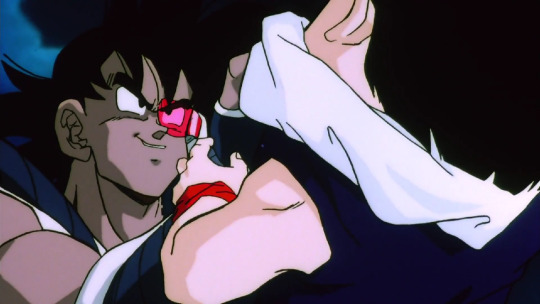
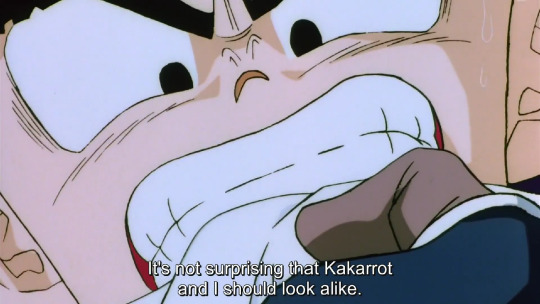
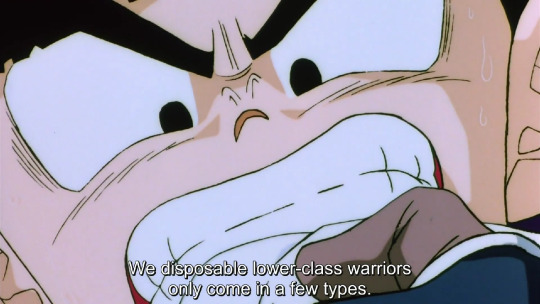
This is the film's explanation for why Turles looks like an evil Goku. Low-class Saiyans like Goku and Turles all have a mass-produced factory-line uniformity to them. Vegeta is a $10,000 custom-made designer doll with carefully handwoven stitching, and Goku and Turles are $5 Barbies sitting on a shelf in Walmart.
I love this. I love that as a thematic piece of worldbuilding for Saiyans. Tragically, due to the movies being non-canon and having little involvement from Toriyama, this is not an official piece of Saiyan lore.
But I wish it was. Because I love that idea.
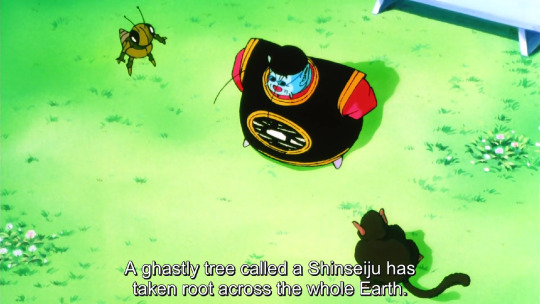
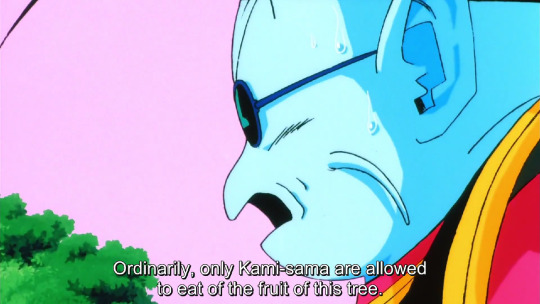
What the dub calls the Tree of Might is Shinseiju, made up of the components Shin (Godly) Sei (Sacred or Spiritual) Ju (Tree). It's a sacred bit of fauna meant only for consumption by gods. It's never explained how exactly Turles stole into heaven and made off with this; It's probably a reference to the Peaches of Immortality that Sun Wukong stole in Journey to the West.
(Funnily, to avoid mentioning Kami's divinity, the dub claims the fruit is meant for Shenron.)
This is some Galactus shit. The tree's fruit sustains gods by feeding on worlds. Once planted, the tree begins to cultivate its fruit by absorbing nutrients and water, as well as the genki of the living things on the planet.
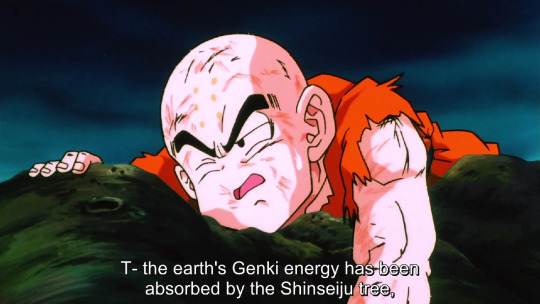
You might recognize that word as a component of "Genki-Dama" or the Spirit Bomb. Genki is one of several components of ki. It's basically a person's physical wellness. There are other components like yuuki (bravery) or shouki (being in the right mind) that influence your ki as well.
This is how the film sets up Turles as Goku's evil counterpart. Goku is a heavenly martial artist, who has studied under gods and learned heavenly arts legitimately. Turles is a thief who somehow stole into the heavens and made off with Shinseiju.
The Genki-Dama is a mass of accumulated genki collected from all across the world, which Goku then uses to attack. Shinseiju does something similar, draining genki from across the planet to create a its special fruit.
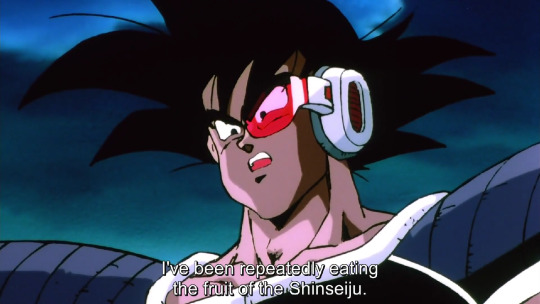
Goku was born a low-class nobody but has improved himself through personal development physically, mentally, and spiritually. Turles, too, was born a low-class nobody, but he improves himself by looting the heavens and sacrificing worlds on the altar of himself.
Kaio warns Goku early on that the Earth is doomed. There is nothing he can do. Shinseiju cannot be destroyed. The coming apocalypse cannot be thwarted. All things will die and nothing can be done. The end is inevitable.
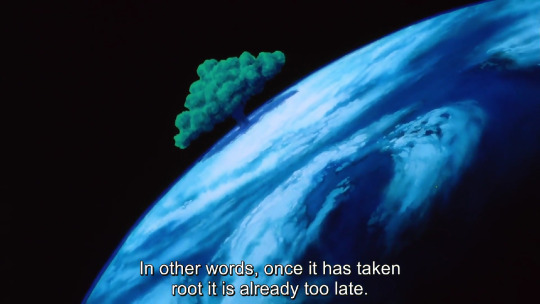
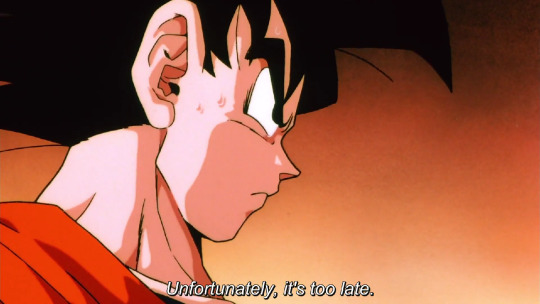
The rest of the film is an act of seemingly pointless defiance from Goku, who refuses to accept "Your world is doomed, it can't be stopped, there are no options, there is no hope," as an answer. The problem here isn't really Turles. He's the villain, but even if Goku could beat him, Shinseiju would still destroy the Earth.
The problem here is the invulnerable God Tree from a realm far beyond mortal life, that has laid down roots across the entire planet and shrugs off any and all forms of damage.
The movie pits Goku's heavenly arts against Turles's heavenly stolen loot. And Goku comes up short. Turles has Shinseiju's fruit.
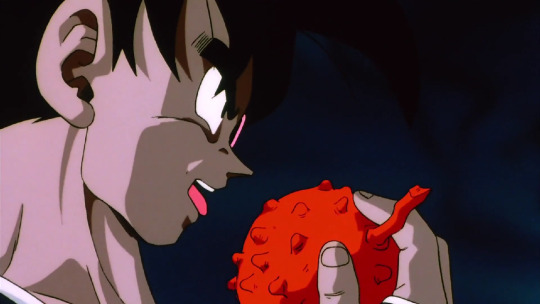
And Goku has Kaio's signature art.
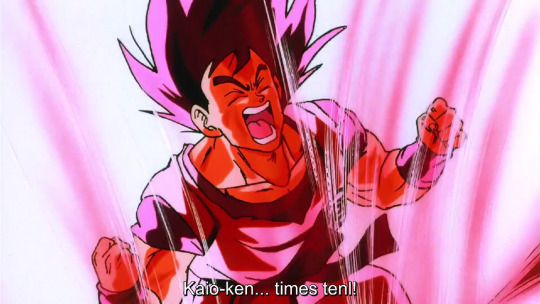
And when the two come to blows....
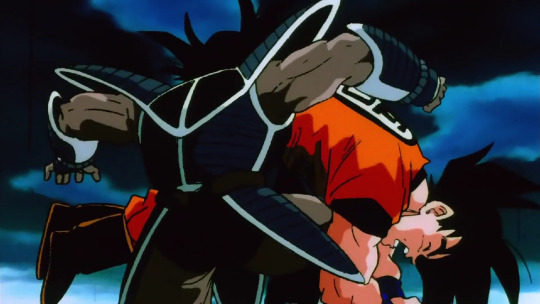
Fruit wins. In a straight arm-wrestling match, Turles's stolen goods have made him too strong for Goku's practiced arts and disciplined study. Even the Genki-Dama fails, because there's so little genki left for Goku to borrow from the Earth.
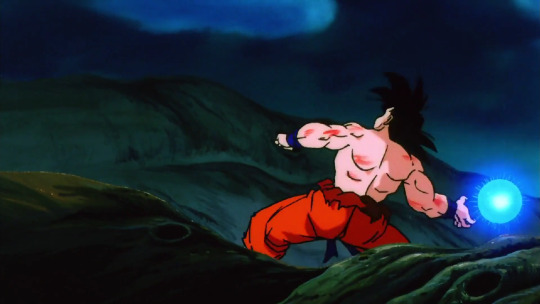
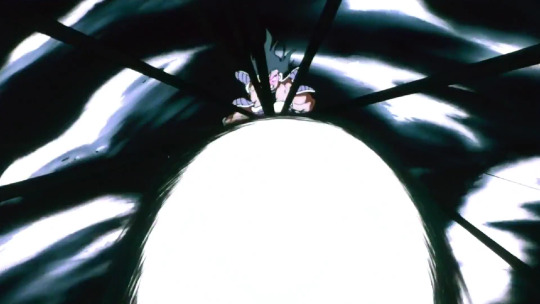

Get the hell out of here with this amateur hour horseshit. Kaio's greatest arts simply can't win against Turles and Shinseiju. In the battle of heavenly warriors, it genuinely seems as if Turles is superior.
But then Counter-Fighter Goku has an epiphany. The Earth is dying because Shinseiju is draining it of all of its genki, right? And the Genki-Dama works by drawing genki out of things, right? So. Like. Hear me out. What if I....
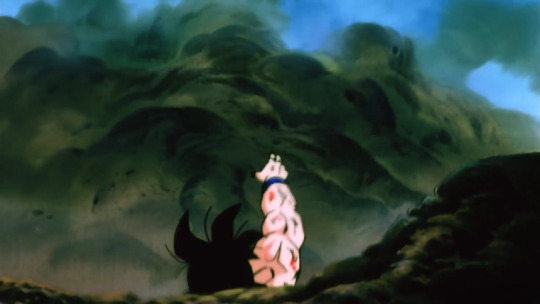
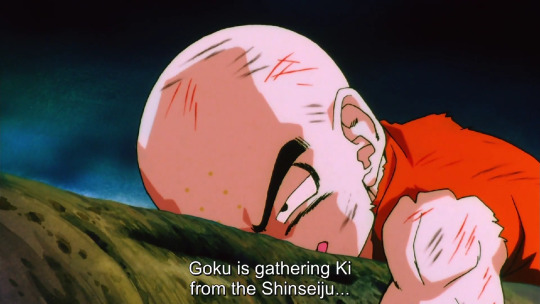
I genuinely love this moment. The movies have a serious problem with overuse of the Genki-Dama for conflict resolution, and I'll admit that. But. Like.
It's just like how Lord Slug's Solar Genki-Dama made use of a super-obscure piece of Dragon Ball lore for great thematic effect. Goku unmaking Shinseiju by letting the Genki-Dama's genki-accumulation effect drink the whole goddamn tree is a brilliantly clever application of a component of the technique we don't really think much about.
Goku can't draw genki from the Earth because Shinseiju took it all. So Goku uses the Genki-Dama to take it back.


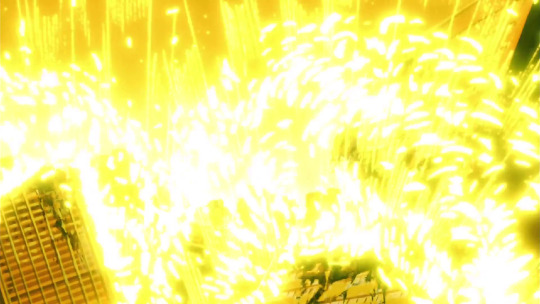

Like. It's far from perfect. None of these movies really rise to the level of "good". But there's a lot of interesting or fun ideas that they have. And I think, in the broad strokes, the ideas put forth by Turles and Shinseiju, as well as Goku's conflict with them, are really interesting.
They needed a lot more polish to really tell a good and compelling story. But there's some diamonds to be found in this rough.
119 notes
·
View notes
Text
by design
INTRODUCTION
Since the October 7 massacre, antisemitism worldwide has skyrocketed to levels reminiscent of the eve of the rise of the Nazis. Dozens of synagogues around the world have been firebombed or set on fire. A 12-year-old Jewish girl was raped in France on account of her Jewishness; another French Jewish woman was allegedly kidnapped and raped “to avenge Palestine.” A pro-Palestinian protestor killed a 69-year-old Jewish man in Los Angeles. An ISIS-supporting teenager stabbed a 50-year-old Jewish man in Zurich, leaving him in critical condition. A San Diego Jewish dentist was murdered under suspicious circumstances. Protestors have defaced Holocaust memorials, nearly lynched Israel’s 20-year-old Eurovision participant, the mother of an Israeli female hostage had to be rescued from a pro-Palestine mob in New York City, protestors disrupted a memorial walk at Auschwitz on the Jewish Holocaust Remembrance Day, and the list goes on and on…
In 2017, the white supremacist Unite the Right Rally, during which participants exclaimed “Jews will not replace us,” drew widespread condemnation from the left. Yet today, day after day, thousands march in main western cities, including New York City, proudly displaying the flags of Hamas, Hezbollah, and even the Houthis, whose banner proclaims “a curse upon the Jews,” and the left hardly bats an eye. Worse, we are gaslit. We are told that these are merely “ceasefire” or “anti-war” protests. We are told “a few bad apples” don’t represent the movement. We are told we are blowing things out of proportion, or that their hateful actions are valid because of X, Y, and Z.
But these are not a few bad apples or fringe extremists. I don’t doubt that the vast majority of people worldwide who feel solidarity with Palestinians are not genocidal Jew-haters. But the antisemitism that we see coming from the pro-Palestine crowd is not a fluke. It’s not a coincidence. It’s not an exaggeration, a distortion, or a lie.
It’s by design. It’s, unfortunately, what this movement was designed to do from its inception, to the detriment of Jews, Palestinians, and Israelis alike.
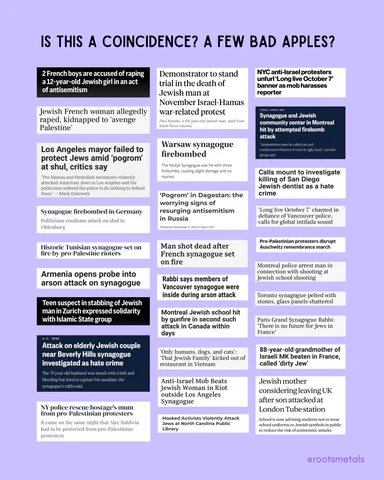
THE LONG LEGACY OF DHIMMITUDE
To really understand what’s going on, we have to go back in time to 637 CE. Following Muhammad’s death in 632, the Arab Islamic empires conquered lands exponentially quickly. As a result of this rapid colonization, the Muslim authorities were faced with the “problem” of how to handle the conquered Indigenous peoples that resisted conversion to Islam.
This “problem” was solved with a treaty known as the Pact of Umar. This so-called treaty allowed select religious and cultural minorities, known as dhimmis, or “People of the Book,” to practice their beliefs so long as they paid the “jizya” tax and abided by a set of restrictive, second-class citizenship laws.
In other words, to survive, Jews had two choices: pay a tax or convert to Islam. But the system of dhimmitude didn’t end there. Jews faced a myriad of second-class restrictions. For instance, Jews could not govern, lead, or employ Muslims. Jews could not join the military or work for the government. When harmed by a Muslim, Jews had to purchase Muslim witnesses, which left Jews with virtually no legal recourse.
You may think that dhimmitude, which was only abolished in 1856, is too long ago, too far removed from the conflict and the Palestinians of today. But it isn’t. That’s not how history works. Fast forward to the beginnings of the twentieth century and political Zionism. Palestinian Arabs, the majority of whom were Muslim, might not have held any ill will toward Jews. But they were accustomed to a certain social structure, in which Muslims dominated and Jews and other religious minorities were second-class citizens. The “threat” of Zionism challenged this structure. Jews were fine, so long as they knew their place. Once Jews started asking for more, well, that became a problem.
THE FORMER DHIMMIS
In 1916, the British promised the Arabs a unified Arab state in Greater Syria, which included Palestine. A year later, the British issued the Balfour Declaration, which stated that “His Majesty's Government view with favour the establishment in Palestine of a national home for the Jewish people, and will use their best endeavours to facilitate the achievement of this object, it being clearly understood that nothing shall be done which may prejudice the civil and religious rights of existing non-Jewish communities in Palestine, or the rights and political status enjoyed by Jews in any other country.”
It’s worth noting that the British did not yet occupy Palestine at the time either of these promises were made. To the Arabs, the Balfour Declaration reneged the earlier promise made to them, whereas the British argued that it, in fact, did not. After all, the Balfour Declaration never specified the exact nature of this Jewish homeland.
Up until 1917, the vast majority of Arabs in Palestine, save for the higher classes, had never heard of Zionism. To prevent any sort of Jewish homeland from ever coming to fruition, the Palestinian Arab leadership, led by Haj Amin al-Husseini, had to mobilize the masses. So what did he do? He incited antisemitic violence, by disseminating the conspiracy that the Jews intended to take over Temple Mount. This incitement resulted in a series of antisemitic massacres, most notably, the 1929 Hebron Massacre.
A couple of things are telling about these massacres. First, the language that was used. At the 1920 Nebi Musa riots, Muslim Arabs ravaged the Jewish community in Jerusalem, chanting “Palestine is ours!” and “the Jews are our dogs!” Second, if al-Husseini’s problem truly was Zionism, he could’ve incited violence against the new Zionist communities that had been established over the previous decades. Instead, however, this violence almost exclusively targeted the oldest continuous Jewish communities in Palestine, in Jerusalem, Hebron, Safed, and more. The threat of autonomous Jews prompted Palestinian Arabs to attack their very own neighbors, the former dhimmis.
SEEDS OF CONFLICT
Today, Palestinians certainly have many legitimate human rights grievances against Israel. But up until the 1930s, when the Zionist paramilitary Irgun carried the first Zionist retaliatory attacks against Arabs, this just wasn’t the case. The Zionist movement purchased lands legally. As a matter of official policy, the Zionists avoided purchasing lands occupied by Palestinian farmers.
The 1937 Peel Commission corroborated this, stating: “Much of the land now carrying orange groves was sand dunes or swamp and uncultivated when it was purchased.” In 1931, the British created a register for landless Arabs; only 664 Arabs out of a total of nearly 900,000 met the criteria.
It’s worth noting that the Ottoman Empire had restricted Jewish land purchases. Once again, Zionist land purchases upset the previously existing social order, in which Jews were tolerated so long as they stayed in line.
In fact, Haj Muhammad Said al-Husseini, the Mufti of Gaza, admitted as much in 1948, when he issued a fatwa stating that “Zionism has created a reality in which Jews have forgotten they are dhimmis.” A similar fatwa had been issued in 1935.
What’s happening today is not at all shocking considering the earliest Palestinian violent “resistance” to Zionism was, to put it plainly, resistance to Jews. In 1937, when Haj Amin al-Husseini was asked whether he would be willing to absorb the 400,000 Jews already residing in Palestine into a future singular Palestinian Arab state, he plainly said, “No,” and implied that they would be expelled. Of course, he also rejected any partition of the land between Arabs and Jews. In other words, Haj Amin al-Husseini rejected the very existence of Jews in Palestine regardless of the political arrangement.
Their problem wasn’t just with Zionism. From day one, their problem was with Jews. So is it any surprise Jews today are being terrorized around the world in the name of Palestine?
ionist land purchases did not displace Palestinians. As a matter of policy, the Zionist movement avoided purchasing lands occupied by fellahin, or Palestinian farmers. This is corroborated by the 1937 Peel Commission, which noted, “Much of the land now carrying orange groves was sand dunes or swamp and uncultivated when it was purchased.”
But up until 1936, when the Irgun, the right-wing Zionist paramilitary group, carried the first Zionist retaliatory attacks against Arabs, this wasn’t the case. Land purchases
"His Majesty's government has been faced with an irreconcilable conflict of principles. For the Jews, the essential point of principle is the creation of a sovereign Jewish state. For the Arabs, the essential point of principle is to resist to the last the establishment of Jewish sovereignty in any part of Palestine."
British Foreign Secretary Ernest Bevin, 1947
SKEWED PRIORITIES
Time and time again from its inception, the Palestinian “resistance” has prioritized the murder of Jews over their own national aspirations. Between 1939-1947, the Palestinian Arab leadership rejected a number of iterations of a “one state solution” with an Arab majority on account of the fact that said state would have too many Jews or afford Jews too much autonomy.
The original 1964 charter of the Palestine Liberation Organization is telling. In 1964, the charter explicitly stated, “This Organization [the PLO] does not exercise any regional sovereignty over the West Bank in the Hashemite Kingdom of Jordan, in the Gaza Strip, or the Himmah area.” In other words, the PLO’s main aim was the destruction of Israel, as opposed to self-determination for the Palestinian people living under the occupation of two different Arab nations. It was only in 1968, shortly after Israel captured those territories during the Six Day War, that their charter was amended to include Gaza and the West Bank.
The pattern has continued. In the early 1990s, when Israel and the PLO pursued a peace process known as the Oslo Accords, Yasser Arafat, al-Husseini’s protege and chairman of the PLO, gave an address at a Johannesburg mosque where he assured the worshippers that this peace agreement was merely a “tactical step” in the ultimate goal to annihilate Israel.
Among the most heard chants at pro-Palestine protests today are a number of variations of “globalize the intifada,” but the intifadas drastically deteriorated the quality of life of Palestinians. The checkpoints and the West Bank wall, for example, were erected in response to the intifadas.There is absolutely no strategic reason in calling for an intifada if the concern is truly Palestinian human rights. The only reason to call for an intifada is if what you wish to prioritize is the murder of Jews.
In the 1960s, Vietnamese general Vo Nguyen Giáp advised Arafat to "…stop talking about annihilating Israel and instead turn your [Arafat's] terror war into a struggle for human rights." But the fact remains: Arafat, and his successors, continued to prioritize Israel’s destruction over Palestinian human rights.
rootsmetals
#Israel#October 7#Hamas Massacre#standwiththetruth#jewishlivesmatter#standwithisrael#stopantisemitism
67 notes
·
View notes
Text
DAY 5897
Jalsa, Mumbai Apr 10/11, 2024 Wed/Thu 12:54 AM
Ramzan Id/ Eid ul Fitar greetings
🌹
🪔 ,
April 11 .. birthday greetings to Ef Lyudmila RF Zueva .. and Ef Heena Maru .. 🙏🏻🚩 .. and may all the best be reserved for you .. love from the Ef's .. ❤️
An extended work out .. repeats, increases of weights , greater time walkabouts .. free arm and the physio to pull the body parts in all conceivable directions ..😁 .. hot showers, the IPL game , when the results are reaching tantalising ends .. and then ..
The mystery of the World Wars .. the building of the armouries .. the mindset of those that work to protect and fight .. the psychological studies of them that initiate such ..
Fascinating .. scary ..
Were then .. am now .. shall be later ..
And life shall move on .. the fears of the past remain fogged and buried .. for the todays, evident and present .. for the tomorrow, the anxiety for the progeny that shall face it .. in time ..
aaahhhhh .. too much philosophy .. this GEN Z shall have none of it .. for them .. Doris Day .. and 🎶 .. and 'que sera sera , whatever will be be will be .. the future's not ours to see .. QUE SERA SERA .. but the song shall ever remain a ???? question mark for the them of today ..
BUT ..
.. how time has kept us all in tune and line .. 1957 Sherwood , Nainital, School Play, Nikolai Gogol's 'The Government Inspector' , Danny Kaye the phenomenal talent, playing the Inspector .. and I use it on stage in Milman Hall for the Annual Concert, where I play the Mayor .. and during a rehearsal, class mate Chris Borthwick, who plays the Inspector suggests the famous line to be spoken at a particular scene - impromptu .. and the entire Hall comes down .. it was the most popular song of the World .. and gives me my best actor Cup - the Kendall Cup .. Geoffrey Kendall, who built the drama Company Shakespeareana, travelling all over the World with it .. came to put up the plays of Shakespeare in School .. asked me to play a part on one such day .. I did not coz' was prepping for my Finals Senior Cambridge Exam .. John Kurrien, classmate did it .. Shashi Kapoor married his daughter - Jennifer - who acted on stage with her Father, and where and when Shashi ji met her ..
GEN Z .. 🥹 !!
Alright then .. its 😴

Amitabh Bachchan
99 notes
·
View notes
Note
I am a teenager. This wouldn’t be that big of a deal if I wasn’t worried I’ll never anything but. I seriously feel like I’m watching the entire world crumble around me. It doesn’t seem like any system in society actually works, there has been a new crisis seemingly every five or so years of my life, with the last four years just being a long chain of constant crises, the world seems like it’s actively worsening and I haven’t even been given the chance to participate in it.
I live in the Netherlands, which is currently going to shit bc some assholes thought it was a good idea to vote for the guy with a campaign plan that was rendered impossible by our literal bill of rights/ constitution (both works, I guess). Like, a bunch of his ideas are just straight up illegal. It took about ten or so months for our cabinet to form and the only things they’ve done by now is try to bypass our democratically chosen representatives, fuck over non-cow based farmers and ruin the livelihoods of refugees. I honestly don’t think that I’ll ever get to be a functional adult with the way the world is going. The 2020s are not a fun time to go through major developmental changes socially and gain class consciousness. I guess this is a bit of a whiny statement. I feel so childish complaining about how the world is getting scary when there’s definitely worse places to be a teen in than the cozy, peaceful Netherlands. However I’m also a literal child, so I think I’m allowed to have a few ‘childish’ fears. I think that we all get to be whiny by now, with how millennials, Gen Z and Gen Alpha are all getting fucked over by the decades of extreme capitalism.
I wanna start this by saying no matter where you are in the world, it's pretty shit. Yea of course there's war zones and famines and stuff all over but that doesn't diminish your pain and suffering. Globally there is this swing to fascism. And a constant denial of the reality we as a younger generation are forced to live with. You have never lived in a world with normal Temps, without a war being shoved down your throat, with the economy on your side. That alone allows you to feel gross and dispair.
It's like how we have over 80 yrs of proof that UBI works and eliminates poverty and yet??? Not a single country to my knowledge has actually gone with it. It's so frustrating watching the answer sit there, covered in dust, just bc it has a fake currency that the older ppl refuse to let go of.
You deserve rage, you deserve fear, you deserve sadness.
But the brighter side is, idk if you've seen in the last day or so. But your not alone in this not even the only teen!
The universe cannot be uncaring bc I care. And bc you care, and bc every other anon who's sent in their sadness and fears cares about each other and the planet. Your not alone. I won't let you be.
19 notes
·
View notes
Note
linh my linh my linh! for the hbowar ask game, l, q, u, w, x, z!
thank you so much!
l. would you say the hbo war fandom is more or less hectic than your previous/other ones?
less hectic. I don't wanna show my hide here but my main fandom before HBOWar is Dota 2 Esport. Oh boi. It was a toxic cesspool of gamerdom™️I'm glad I left it behind.
q. acknowledge something nice about your least favorite of the hbo war shows.
I can and I would. MOTA's music and sound mixing is amazing. The title theme really goes above and beyond and absolutely needs to win an award or two.
u. acknowledge a flaw in your favorite of the hbo war shows.
TP has no flaw! /j
I think while there is some obvious flaw with TP, for instance its pacing issue. But another lesser problem it has is how unbalance Basilone's storyline is. Speilberg and Hank really can't make these war show without some mythical hero-ism. No offense to the real life Basilone who I know is a really cool dude, but this storyline imo lacks the depth that Leckie's and Sledge's have.
w. what's an hbo war url that you like/would change to? if you have an hbo war url, why did you choose it?
i don't have an HBOWar url 😔 But if I don, I wanna have the eugenebsledge url
x. choose one screencap of any of the shows that you would frame and put on the wall.

z. tag some of your favorite artists/writers/editors in the fandom and give them a compliment.
aaahhh okay imma try to be cool.
@bitch-butter webgott extraordinaire. I love love your realistic yet riveting portrayal of the up and down in relationships (both romantic and platonic) and how messy people can be. Your OCs are fantastic. And your deconstruction of typical Omegaverse tropes in 'everybody wants to rule the world' is the first i've ever seen and so well-done it should be setting the new standard for this AU.
@ep6bastogne listen to me. you have a very distinct voice, you are meticulous in your detail. and you have so much passion for writing it shows in any of your project
@avonne-writes you have a very gentle yet devastating prose. Your world-building has a unique quality: its depth peaks through every ordinary detail and make me want to know more about everything. I love all your works. You never miss.
@gorgeousundertow the first thing that come to my mind is your research and how much you have fun with real life details. And you are so so good at the ✨yearning✨ you can teach a class on that xD
@thewayisset I LOVE YOUR ART. You deserve to have your own gallery, that's all <3333 I feel like I suck at analysing art so I can only give you a lot of heart ❤️🔥❤️🔥❤️🔥
@screwby again. what can i say. your works are spectacular! Especially your watercolor!!! ❤️🔥❤️🔥❤️🔥❤️🔥
@cinnamonrollsledge i already screamed and shouted in your inbox but I need to say it into the world how much i love your edits!!! I love the TP ep 6+White gif set you made wowza that is talent
@antigonenikk devastating edits. hits everytime. and I'm loving all your fics too, you are really good at poking at the pain and angst but keep it in-character. That Sledgefu/Mr.robot fusion fic lives in my mind rent-free 🗣️🗣️🗣️
@almost-a-class-act queen of banter in her fics, you are very insightful and I love your perspective on both the historical side of things and also the fandom side of things <3
@getmean one of the biggest inspiration for my own writing. i don't know what more can I say beside, you are the GOAT. And unlike sport commentators, I really mean it.
okay that is a lot of people. I will stop now.
20 notes
·
View notes
Text
₊‧₊˚Manifesting and the Bible 2/2˚₊✩‧₊
Part one here :🩵
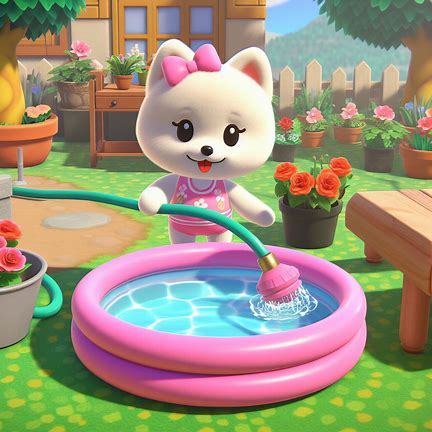
I will talk about everything and anything here. My thoughts about some '' sensitive '' topics I guess..
The genesis
When I was a Christian, I always asked myself how the world was created. And I loved the Genesis part, I could read it again and again.
But when we think about that it's how we create our world in our mind. Everything is pitch black and we visualise the sky, the land, the sea ect. It's the same principle, when you want something in your mind, it have to be created. It's already done.
The Bible God didn't wait for 3 days, 21 days, months or years. Got instantly. He wasn't like '' How can I create tree? They need to grow. '' or '' I need water to make the ocean ''
No.
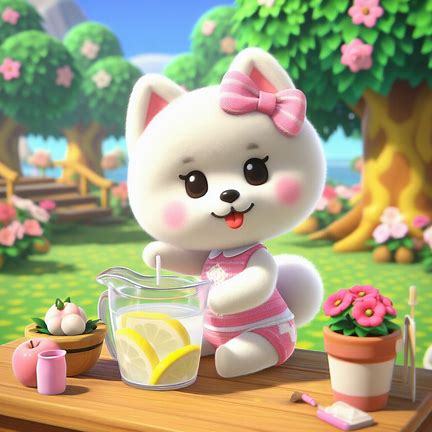
It's like when you have a desire, if... For example you want a cup of water, it will appear in your hand instantly and you will drink it.
The Bible God went straight to the end, when his creation was already finish. And it's true and good. Because what you think in the mind is true and good.What you think in your mind is the truth, what I mean by that when you think about your bad circumstances and bring those circumstances into your mind and focus on them, it's true for your mind.
Because your mind accepts everything as true.
The creation of man :
So God created man in his own image,
in the image of God he created him;
male and female he created them.
God (aka your mind) created the men (the outside people, the people in your 3d) at your image. They are created according to your inner self beliefs.
Let's take myself as an example.. When I was 11, I felt really alone. I had no friends, nobody to talk to. My inner self state was :Loneliness.
Guess what? People around me were created according to that state. They made me feel alone, left alone,ignored.
When you feel left out by your SP, your Sp will make you feel that way. The 🔥🧊 behavior is due to :
Sometimes I visualise and affirm that my Sp loves me.
But
Sometimes I tell myself that my Sp is ignoring me.
People around you are your inner self expressing themselves within the people around you.

The end of the world or Judgements day :
I want to tell you that nobody will come across the sky to judge you. No one. That's my thought tho. I mean a being who didn't lived on Earth cannot judge you for what you've done on Earth.
But let's go straight to the subjet. Hell is the state of living a life you don't like. Imagine a life in a body you don't love, seeing your Sp getting married and being happy with someone else and never achieve your dream? This is Hell.
Hell is looking around and seeing your circonstances getting worst and worst. Being trapped in this reality, being slaved to your senses, the 3d. This is Hell.
That's why (it's sound like those Christian classes I used to do) Jesus came to save you. Your imagination is here to save you. Your imagination forgives all your sins (your failures, the bad things you have done in the past).
The imagination wants you to go to heaven.
Heaven is a state of having your desire. Being fulfilled, living in bliss. Having your perfect life, your Sp,your desired body, your friends.
This is heaven. And the end of the world is what? It's the end of your life on Earth. Will you have the life of your dream and have access to heaven or having a life you didn't loved, a life you hated.
It's for God, your inner self to decide if you go to Heaven or Hell. That's why every LOA bloggers tells you to DECIDE! What do you want? You want to have your desired life? Or live in a world full of bad circumstances. It's for you to decide.

IF I AM GOD, WHY THE WORLD IS NOT IN PEACE?
Unless you identify with a savior, you won't be. There is war because you are conscious of it. Plus you can't save anybody, look at how many people know about manifestation and Loa and keep saying that it's a '' Gen Z thing '', '' New age '', '' Satanism '', '' Trick for lazy people '', '' Delulu ''
Once, someone called me Satanist,my parents called me Delulu. We can't save everybody.
And the more we will be focus on making peace, the more we will see that they are still places At war, so the more we will be conscious about the world not being in peace.
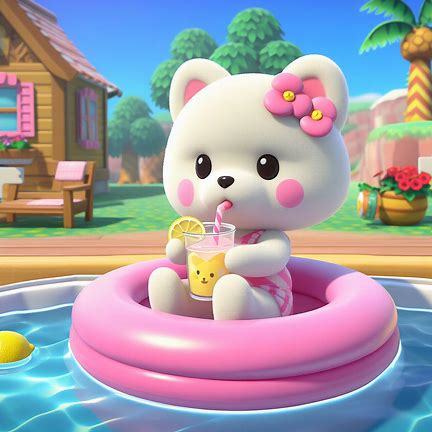
I think I said it all. Maybe I have more to talk about in the future.
#loa tumblr#loassumption#robotic affirming#law of assumption#manifestation#loa assumptions#loa blog#affirming loa#affirm and manifest 🫧 🎀✨ ִִֶָ ٠˟#affirm and persist
38 notes
·
View notes
Note
So I debated for a long time whether to send this or not bc I explicitly do not want to equate what's happening in I/P to fiction or in any way trivialize the very real people who have died
But I find it incredibly ironic (in a bad way) how the leftist circles screaming about Zionism are the same circles that are STILL openly proudly fans of tv shows/books/movies that depict war in genuinely nuanced ways. Ways that EXPLICITLY contradict the black and white narratives exploding in leftist spaces.
So like. Did y'all miss the point or do you think nuance is for fiction only? There are innocent civilians on every side in war and civilians shouldn't be blamed for the actions of their governments --but only in fiction? In the real world it's fine to celebrate civilian casualties as long as they're Israeli? Guilt by association in fiction is bad but every Jewish person should be held accountable for the Israeli military???
Like I'm intentionally not naming any fandoms bc this SHOULDN'T be about fandoms, but the hypocrisy is killing me. They claim to be fans of the "killing civilians is bad even when they're from the Bad Culture™" shows but they're out in the real world denying (or worse celebrating) Oct 7th? They love the fictional characters who say "killing civilians is bad" but can't stand Jewish people mourning the civilians in israel? What???
(again, I'm really not trying to make this extremely real problem about fiction. I just mean the complete lack of self awareness I see every day has me ready to explode. )
no, i get what you mean. i definitely think there's a link between the massive drop in critical thinking and media literacy and the fandomization of real world issues. there's some statistic that gen z is the most politically active of most previous generations and while that's inherently a good thing, they're not engaging with politics and conflicts in responsible ways. they'll do a lot of organizing for a cause here in america and get something done, and then think they can do the same thing for international plights and just end up stepping on everyone's toes, inadvertently perpetuating that america-centric attitude they claim to be against, bc they don't listen.
a lot of people these days refuse to engage with media in the way it's intended and therefore ignore or flat out miss its entire message. you'll have a movie/show/book/whatever about the nuances of war, like the hunger games (which gen z is so completely misinterpreting), and how easy it is to become the person you're fighting against if you let yourself do the things they do eye for an eye style, and they'll come away from that comparing hamas to katniss. it makes no sense within the context of the book's narrative, yet that's the conclusion they draw because they refuse to properly engage. it contradicts their second-hand anger. they're mad about their own shitty life in the states and the powerlessness we all feel here as our rights are being threatened every single day, and they'll look for somewhere else to put it all. so they butt in to situations they don't belong in and make it worse like bulls in a china closet.
bottom line is that they see what they want to see because of their lack of self reflection and self awareness, thus allowing their lack of media literacy, critical thinking, and confirmation bias run the way they think and believe. they've taken "it's fiction" to the point where none of them would pass a basic english class and now palestinians and hamas are all blorbos in The Real World Show.
23 notes
·
View notes
Text
One of the things that really annoys me about the Star Trek community on Reddit is that so many people there are adamant about treating Starfleet as if it's the Federation's military and nothing else. What really annoys me about it is that it leads to a lot of conversations about why this or that character isn't being subjected to an up-or-out policy the same way military personnel might in the real world.
This is the kind of view that's absurd on the face of it. Starfleet is the Federation's military, but it's also more than that. A lot of the work it does is stuff that would be done by other government departments or by private entities in the real world. This includes stuff like science and exploration (what they're explicitly focused on), disaster relief, transporting colonists to new colonies, providing transport to ambassadors, and so on. Even in cases where some of this is being done by organisations outside of Starfleet, the shows portray Starfleet being involved in some capacity.
There also isn't a clear delineation between ships and personnel who are mostly working on the military side of things and those that are mostly doing the science, exploration, and civil service work. The same hero ship whose mission in one episode is to deal with some military confrontation or another can often be dealing with a non-military issue in the next.
Yes, there are some ships and some officers that are implied to mostly be focused on that (e.g., Captain Jellico on the Cairo, or basically anything Admiral Nechayev is up to), but it can't be taken as a given that this has been their entire career. It's often just the assignment they have right now. It's been shown that someone can go from a generalist ship to being on a specialist mission. Barclay, for example, was on the Enterprise-D and -E for years, but his next assignment was on the Pathfinder project looking for Voyager.
Coming from that perspective, having an up-or-out policy doesn't make a lot of sense. A lot of people do go get a job and just stay in that position for decades. This isn't really as common with Millennials or Gen Z, but it was common enough with Baby Boomers and Gen Xers, who largely wrote and produced the older Trek shows. Plus, a lot of the people in Starfleet are people doing very specialised jobs that there wouldn't be too many other people capable of doing, so they can't just go, "Oh, you're like 40 and still a lieutenant? You're being drummed out."
Another thing here is that some of these ships are on very long-term assignments. The Excelsior had been on a three-year cataloguing mission prior to the destruction of Praxis for example, and the Enterprise had been on a five-year mission in deep space around the time of the Klingon war in Discovery. This is something that'd only get more pronounced as time went on. One of the big reasons why ships in the TNG era were designed to have families onboard is because a lot of these ships, the Galaxy-class particularly, are designed for ten or twenty year deep space assignments.
In cases like that, it doesn't really make sense to have an up-or-out policy. These ships are hundreds of light years away from Federation space for years at a time, so once someone is promoted to a point where they should be a department head or a first officer on a different ship, they'd have no other ship to go to. Even for someone who really wanted to go up the chain of command on those ships, it'd make more sense to have them as a lieutenant for five or ten years and then bump them up to lieutenant commander when they're actually able to be transferred to a different ship.
I think it also ignores the actual practical reason why up-or-out policies exist in real world militaries. In real life, there's only a limited number of postings available, even in very large militaries. It's not like in other industries where you can just bide your time for an opening at another company; if you're in the military and want to continue working in that field, there's only one employer. If someone stays in one position for too long, they're clogging up space that would otherwise be taken by someone who actually wants that position and eventually the one above it.
This is less of a concern in Starfleet. A fleet of around 40 ships is considered to be a huge deal in The Best of Both Worlds, set in 2366-7, but a decade later, Starfleet's fielding these huge fleets with hundreds of ships in them during the Dominion War. Between the huge size of those fleets compared to the size of the fleet five or ten years earlier and due to the wartime losses, they struggle to find enough warm bodies to actually crew them.
Even outside of that, the Federation is constantly expanding during the early centuries of its existence. In 2161, the Federation was founded with four members, and by First Contact in 2373, it had 150 members. That's 146 members in about 110 years. On average, once one new member joins, it'll be less than two years before another does. This is before considering the huge amounts of colonisation of planets that the Federation apparently does.
Just due to that, there'd always be a need for more and more Starfleet ships just to protect that amount of space. While in real life, the up-or-out policy is there to benefit the career oriented, Starfleet doesn't need it as much. For people who are dead set on going up the chain, there's always going to be another ship available pretty soon.
So overall, I don't think Starfleet is hurt by not having an up-or-out policy. I think if anything, it has the opposite problem. It's not really attracting enough people to crew all the ships it actually needs to do its job.
All of this is one of the reasons why I feel like a lot of Reddit Star Trek fans are fans of the franchise in the same way World War II wonks are history buffs. Yeah, the World War II wonk can tell you all the major battles, can describe to you in great detail every weapon used in the war, and can give opinions on how the T-34 compared to the Panzer or whatever, but they struggle when it comes to describing the political situation and how it's affected world politics ever since. Similarly, a lot of Reddit Trekkies can give you a broad overview of the canon and can describe to you in great detail what any given class of ship is shown to be capable of, but they often struggle in dealing with the actual thematics of the show.
24 notes
·
View notes
Text
I genuinely hate generational politics. We should be knocking down billionaire's doors not making fun of how each other dresses, what kind of slang each other uses or how cringy each other are.
Like we all live in our societies as they are and that means we adapt to the things around us and things are hard right now. No, not all millennials are bad parents, not all boomers are rude Karen's, not all gen x are maga Republicans and no not all gen alpha are stupid iPad babies.
Like, yes those mean stereotypes exist for a reason but the reason is we have bad infrastructure in literally every possible category of living.
Instead of getting mad at the parent who doesn't know how to deal with their child lets address how much people have to work now in order to keep up with bills and thus don't have the ability to spend more time with their kids, let alone learn how to care for them.
Do you all realize how low the baseline of mental health is on an average? Pretty low. Therapy is still a pretty taboo topic for most people and is only growing worse with how often shootings happen now.
Gen z and gen alpha get blamed for being stupid or lazy but like- I get it??? If I hadn't had the short freedom from technology in the 90s and early 2000s I probably also would be much worse in school and socially. But that's not their fault and also we are living through war times and have literally no where to socialize.
Our world is designed to do everything it's doing and to hurt and prod and poke from everyone it's poking at and it's ridiculous to fall into the trap of blaming someone ahead of us in the race when we all know the real culprit.
It's not the other poor people or the other uneducated or the other mentality Ill or- it's the fucking wealthy. It always has been. For fucking time immortal it has always been the wealthy.
It's class politics that the average people need to focus on. Age politics is how they get us to fight each other instead.
#rant#sorry i read a fucking dumb ass article and it made me mad#im a little too high to keep my words to myself l#if it sounds weird thats why#but yea#the wealthy are the problem and i hate how easily people get led into the trap of fighting each other#thats what they want love#for us to fight each other and not them#seriously this is just a rant
16 notes
·
View notes
Text
Russian women have, shockingly, embraced the Kremlin’s war in Ukraine despite the heavy toll it exerts on their men.
Though Russia doesn’t disclose casualties, they are mounting. Scores of new graves housing the remains of “heroes” are popping up across the country as the labor ministry requests certificates for families of the deceased by the hundreds of thousands. While the state heaps praise on these men in death, in life it seems to view them as disposable. Russian officials have made this abundantly clear, repetitive to the point of cliché: “Women will give birth to more.”
Despite standing to lose so much, the wives, mothers, sisters, and girlfriends of Russian soldiers have largely nodded along with the Kremlin’s moribund determination to grind down their men. They weep at makeshift memorials to Yevgeny Prigozhin, the late chief of the paramilitary Wagner Group. They show little gender allegiance to the women of their former sister republic. Some are actually proud of their “defenders,” egging them on to rape Ukrainian women should they get the chance. In packed concert halls across the country, girls sing along ecstatically to “Ya Russky” (“I am Russian”), the country’s new patriotic anthem. Their faces soften the song’s promises to “fight to the end” and “spite the whole world.” That seems to be the point.
Russian womanhood, routinely held up in the country’s lore as a paragon of strength, patience, and sacrifice, is now functionally a cover-up for the crimes of Russia’s men. Two of Russia’s most notorious propagandists, Margarita Simonyan of Russia Today and Olga Skabeyeva of the Russia-1 television channel, are women, as is Maria Zakharova, the boorish spokesperson of the Russian Foreign Ministry.
Beneath them lurk less prominent figures with important platforms. There’s Putin’s Brigades, a motley crew of activist grandmothers who have abandoned their communal yard benches to rally the masses for President Vladimir Putin and his war. They call on U.S. President Joe Biden to stop “NATO’s war against Russia” and on Ukrainian President Volodymyr Zelensky to surrender. The Project in Red Dresses, which is supported by an organization run by one of Putin’s relatives, mobilizes women across Russian towns. Draped in red, they waltz through public spaces, seeking to both boost women’s confidence and unite Russians around their leader.
Women support the war effort in other ways, too. Back in my hometown, my mother’s acquaintances are knitting camouflaging nets for Russian troops and teaching children how to make trench candles to send to the battlefield. Schoolteachers—the majority of whom are women—are now responsible for children’s patriotic upbringing. In the state-mandated weekly class “Conversations about important things,” teachers disseminate Kremlin-approved talking points and rally support for the war among children as young as kindergarteners—lining them in Z-formations, organizing visits and weapons demonstrations from “defenders of the motherland,” and even engaging children to help produce those weapons. Teachers who disagree with the war or try to get out of this duty are denounced—often by other women—and subsequently fired or forced to quit.
Women haven’t always been so compliant with the state’s agenda. In 1917, they famously took to the streets to protest food shortages and the monarchy, sparking the strike that eventually triggered the Russian Revolution. More recently, the Committee of Soldiers’ Mothers of Russia was instrumental in pressuring then-President Boris Yeltsin to end his war on Chechnya in 1996.
Nearly two years of Russian carnage in Ukraine, however, have produced mostly acts of individual heroism. For instance, Channel One Russia employee Marina Ovsyannikova made an on-air appeal to viewers not to believe the state’s lies about the war. The artist Sasha Skochilenko swapped supermarket labels with messages about Russia’s crimes in Ukraine. These acts did not go unpunished: The former has since fled the country, while the latter was sentenced to seven years in prison.
Subversive performance art, once a tool of female dissent, is no more. After serving prison terms for their anti-Putin anthems, members of the feminist band Pussy Riot are now in exile, raising money to support the Ukrainian military. These days, the mere suspicion of “radical feminism” can land one in prison. Playwright Svetlana Petriychuk and theater director Yevgenia Berkovich, the duo behind an award-winning play about Russian women who married Islamic State fighters, were accused of “justifying terrorism” and were jailed in May 2023.
Women are now more likely to spend their energy on procuring fake medical certificates to excuse their sons and husbands from war than on resistance of any kind. Those who privately disagree with the war—their number is anyone’s guess—keep the sentiment to themselves. But their personal hesitations have sparked nothing remotely political, let alone a challenge to Putin’s willingness to wage war.
It is hard to say how much of the population’s 70 percent approval rate for the war is driven by fear, propaganda, or ignorance, but one thing is clear: Since the start of the invasion, the already-malfunctioning Russian moral compass has broken irrevocably. Designated to reproduce life, women now must participate in Putin’s show of death.
Seeing their men off to some kind of calamity has long been considered part of the bargain of Russian womanhood. The movies of my adolescence, which coincided with the last decade of the Soviet Union, featured countless examples of men marching off to fight our enemies—World War II, World War I, the civil war, the Napoleonic wars, the Mongol invasion, the Viking raids. In literature class, I memorized the monologues of wounded heroes; during choir lessons, I sang sad ballads with titles like “Goodbye, Boys,” begging soldiers sent to war “to come back alive.” This proposition wasn’t theoretical: My male classmates faced a real prospect of being drafted into the Soviet-Afghan War upon graduation. After that war, there were others; even during the post-totalitarian 1990s, war was never absent from the public’s mind. Someone, somewhere, was always waiting for “our boys”—the absolving way in which Russia routinely refers to its soldiers—to return.
While the boys were hailed as heroes, the options available for girls and women were less inspired. In a patriarchal society, like Russia and the Soviet Union before it, there are few acceptable female archetypes during times of war. Motherhood is one. In the Soviet era, it was epitomized in Mother Heroine, an honorary title awarded to women who bore and raised 10 or more children. Introduced under Joseph Stalin in 1944 to address the massive population loss during World War II, Mother Heroine codified the Soviet woman’s primary duty as the producer of manpower, a resource to be used at the state’s discretion.
After providing children for the state, the Soviet woman’s task was then to galvanize them into fighting for it. At the site of the Battle of Stalingrad, there is a colossal statue of a woman brandishing a sword, titled The Motherland Calls. At 279 feet, she is the tallest woman in the world, perpetually summoning her countrymen to battle. The Motherland Warrior, as we might call her, reminds citizens that their motherland is under threat and then assures them of the righteousness of any war fought in its defense.
Women under war were also encouraged to share its burden on the battlefield. In Soviet books and movies about World War II, women were often comrades-in-arms. Female sharpshooters killed Nazi officers, blew up German trains, and suffered Gestapo torture without shedding a tear. Though she fought alongside men, the Comrade-in-Arms still carried the emotional responsibilities of womanhood: She cared for the wounded and inspired them to commit more acts of heroism, just like their Mother Heroines did from the home front.
Between wars, women were equal partners in delivering on the state’s agenda, whether harvesting fields on collective farms or laying the bricks of the great construction projects of communism. In the iconic Moscow statue, Worker and Kolkhoz Woman, a man and woman put this partnership on display, holding up a hammer and sickle triumphantly as they labor together toward the building of the socialist state. This gender equality, however, was less the product of idealism than economic necessity: Soviet leaders had to conscript every resource available to compensate for the flaws of their planned economy.
These archetypes, defined and promoted by the state, were meant to carve out and assign value to women’s roles in Soviet society. The reality behind them, however, was far less glorious.
The equal partner’s experience, for instance, did not feel very equal. Though women were emancipated by the revolution and encouraged to labor alongside men, their contributions were not rewarded with political power. Only four women ever breached the ranks of the Politburo, the highest communist body of political power; their prospects at the local level were similarly bleak. Beyond poster cases like sending a woman to space, an average Soviet woman’s celebrated equality mostly amounted to the double burden of work and household duties.
Nor could those state-imposed archetypes override the informal but pervasive attitude that women were the “weak sex”; this sealed their inferior position in society. From childhood, girls were groomed to compete for men by looking pretty, excelling at housework, and guarding their fertility (“Don’t sit on cold surfaces—you’ll freeze your ovaries!” our mothers, schoolteachers, and concerned strangers instructed.). In the lighter Soviet movies, even imaginary women who held positions in high society pined for marriage and children. Female intelligence was viewed as a handicap. A smart woman was a woman who didn’t know her place, a criticism that dogged Mikhail Gorbachev’s obviously smart wife, Raisa Gorbacheva, throughout his political career. In marriage, patience and self-sacrifice were considered the highest virtues, as demonstrated by the wives of the Decembrists, the 19th-century aristocratic women who voluntarily followed their husbands to Siberian exile in the aftermath of the failed uprising.
In the provincial town where I grew up, little respect existed between genders. In divorce, which was common, men’s infidelities, drinking, and beatings were often sheltered under the legal euphemism of “irreconcilable differences.” In the street, catcalling women and grabbing their bodies were the norm. Three of my close friends had their first sexual encounter in the form of rape. All three assaulters were boys we knew: our boys. My friends never reported the crime, unwilling to add societal condemnation to the despair they suffered in private. There were only so many ways to be a woman in the Soviet Union, and a victim was not one of them.
Perestroika, the period of liberalization started by Gorbachev in the mid-1980s, brought real rather than proclaimed agency to Soviet women. Shaken by the unfolding collapse of the socialist economy, most women had to concentrate on pulling their families out of financial ruin and had little time to spare for politics. But not all. Though they were still exceptions in the male-dominated political scene, several female trailblazers rose up during this time. Political dissident Valeria Novodvorskaya, who lived through decades of arrests and forced psychiatric treatments for protesting the Soviet regime, created the country’s first non-communist party, Democratic Union, effectively breaking the one-party state system. Galina Starovoytova, a democratic politician and advocate of ethnic minorities’ right to independence, became one of the most recognizable faces of the Gorbachev-Yeltsin era, as did journalist Anna Politkovskaya, who rose to the top of the largely male profession with her human rights activism and fearless coverage of the Chechen wars.
The 1990s, a decade of relative freedom ushered in by perestroika and the collapse of the Soviet Union, proved insufficient to revert Russia’s bend toward patriarchy. Gender equality is an expression of freedom, and Putin liked control. It didn’t help that both Starovoytova and Politkovskaya were assassinated, or that Novodvorskaya, among the first to ring the alarm on Putin, was repeatedly labeled “dem-shiza,” or “democratic schizophrenic.”
As Putin gradually retooled the country into an autocracy, he hijacked the ever-present fear of war lingering in a nation that had seen its men mowed down by the millions and painted it not only as inevitable but honorable. In his endless military spectacles, women in period combat nurse costumes marched alongside Topol missiles, walking reincarnations of Soviet-era war film stereotypes. Their cheery presence lent an air of legitimacy to the state’s escalating violence.
Putin wrapped sexism in dated chivalry rituals, like flowers “for the beautiful sex” (as women are often referred to in Russia) sprung on female politicians. Crude sexual jokes and rape talk, previously taboo in public discourse, were now gamely dispensed by Russia’s man in charge, met with laughter and applause in return. The international community may have been aghast in 2022 when Putin quoted an obscene Soviet-era punk rock lyric about raping a sleeping woman to explain his demands for Ukraine: “Whether you like it or not, bear with it, my beauty.” But in Russia, this phrase is familiar, quoted by men and women. In a society built on violence, revolutionary or otherwise, a woman always loses.
There is no obvious end in sight to this regression. The war in Ukraine has hastened the post-perestroika narrowing of paths available to Russian women, and their value is once again defined by their compliance with the war effort.
Today, even mothers and wives demanding the return of their sons mobilized to fight in Ukraine often start by avowing their support for Putin’s war; many simply insist on replacing their men, who paid their dues, with others. The promise of the equal partner is also fading: In wartime, putting their careers first is not a viable option for most women. The longer the war goes on, the less funding will be available to health care and education, sectors that traditionally employ women, as money is redirected to industries that more tangibly support the war effort. The GDP boost from increased military spending will be offset by Western economic sanctions, so women planning business careers may have to reconsider how they spend their time.
As abortion restrictions expand, there are now few legal offramps available from the path of motherhood, and aspiring career women will instead have to make do with the task of raising and educating future soldiers—an occupation they are encouraged to start shortly after completing their secondary education.
The resurgent Russian Orthodox Church, Putin’s main ally in turning Russia into a conservative bulwark, has expanded its mother-forward offerings to help women bear with this reality. New rituals and holidays were introduced to celebrate “traditional family” and “traditional values,” code words for LGBTQ denialism, and the woman’s role as the “keeper of the hearth.” In squares and plazas across Russian towns, Vladimir Lenin’s statues have begun sharing public space with those of previously unknown saints designated as the patrons of family and marriage.
The Mother Heroine, Motherland Warrior, and Comrade-in-Arms are alive and well in Putin’s Russia. Joining the ranks of these surprisingly durable Soviet archetypes is the soldier’s wife-in-waiting. She supports the war from the rear, infuses children with pride, and doesn’t ask questions if her man is reported dead or missing. This last attribute, not asking questions, seems to be the defining feature of acceptable Russian women today.
What, then, is the Russian woman’s reward for her compliance? The short answer is: not much. Russian oligarchs, the country’s proxy for economic power, are almost exclusively men. Women make up roughly 18.3 percent of the Russian parliament. In terms of pay equality, women earn about 70 percent of what men do in similar jobs. Culturally, misogyny and sexism flourish. Russian comedy shows often portray women as too dumb to tell the steering wheel from the shifting gear.
A deadlier plague is domestic violence, a problem recycled from Soviet times and the times before them. One-fifth of all Russian women have been physically abused by their partners. Every year, some 14,000 women are killed by it—that’s nine times more than in the United States, which has twice the population. The actual number is likely much higher, since many women are afraid to report incidents of violence against them. In 2017, with the support of the Russian Orthodox Church, the Russian Duma decriminalized domestic violence that doesn’t require a hospital stay. It is as if the state itself has embraced the worn Russian saying, “If he beats you, it means he loves you.” Given the toughness of this love, it’s possible that for some women, seeing their abusers off to war becomes a path to liberation.
It’s certainly a path to economic improvement. The $2,535 monthly starting wage offered to those enlisting to serve in Ukraine is nearly 14 times higher than the median salary in Russia’s economically depressed regions, which deliver a disproportionally large number of recruits. If they die in combat, oh well. Better to go out a hero than, as one Russian priest said, the usual “choking on their vomit.” The families of fallen soldiers can also receive lucrative “coffin money” payments for their troubles, a rare glimmer of economic opportunity for working- and lower-class Russians. In July 2022, Russia-1 aired a story advertising the riches of enlisting to fight: The family of one deceased soldier sorrowfully recounted how they bought a previously unaffordable Lada car with the payout for the death of their son who dreamed about having a white car—“just like this one”—then drove it to his grave.
For many women, the price of resistance may be higher than they’re willing to pay. But if they continue to go along with all this, they’ll be doing so under increasingly dangerous conditions. Already-rampant domestic violence will only get worse as the war goes on and civilian men are maimed by battle and replaced back home with traumatized veterans and pardoned convicts. In the past year or so, returning “heroes” have raped teenage girls and burned their sisters alive. One convict-turned-Wagnerite stabbed to death an 85-year-old woman after terrorizing others with an ax and pitchfork in truly Dostoyevskian fashion.
For crimes against women, however, there are few punishments so long as they are committed by those willing to sacrifice for the Kremlin. A lieutenant colonel from Kuzbass was detained for the murder of an 18-year-old girl nearly two months after Putin made him a “Hero of Russia.” Following the arrest, he was defended by his superiors for having “brought invaluable benefit to the motherland in the fight against the Ukronazis.” Another man was pardoned from an 11-year prison term for murdering his girlfriend and putting her corpse through a meat grinder, after enlisting to serve in Ukraine.
A nation can be judged by how it treats its women and its girls, to paraphrase former U.S. President Barack Obama. Russia’s abuse of women, plastered over at different points of its history by the rhetoric of equal rights and traditionalism, underwrites the brutality of its war on Ukraine. If men can pillage and plunder their own, nothing stops them from exercising that right in a foreign land with a gun and a hero’s medal. Having abdicated their collective responsibility to call their men to answer, Russian women find themselves in an increasingly dehumanized society, where support for the war is not a guarantee against becoming its victims.
24 notes
·
View notes